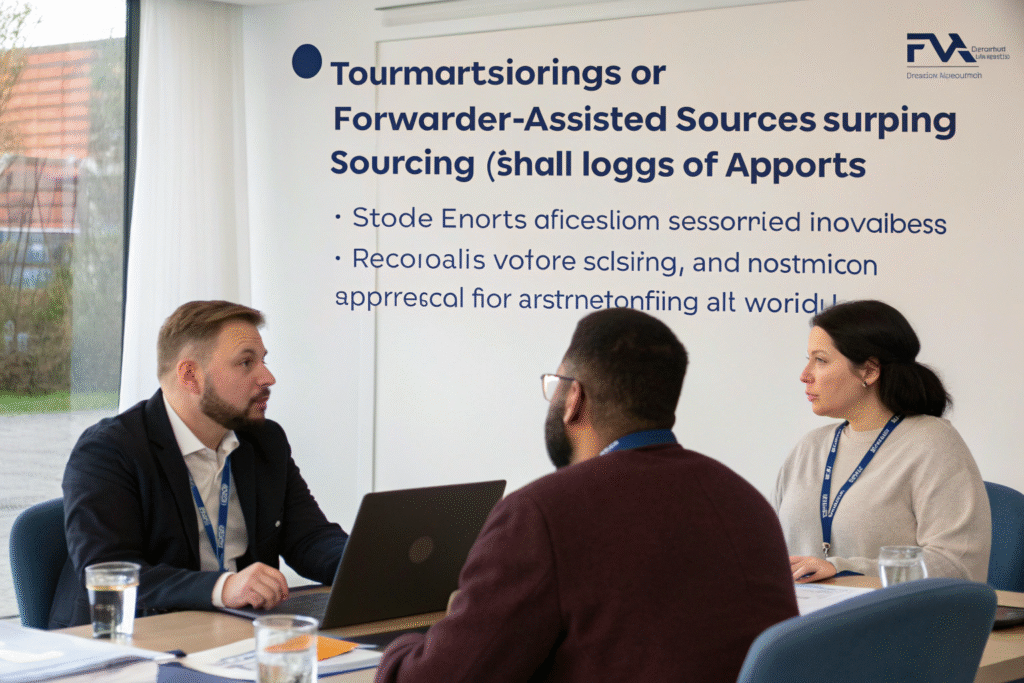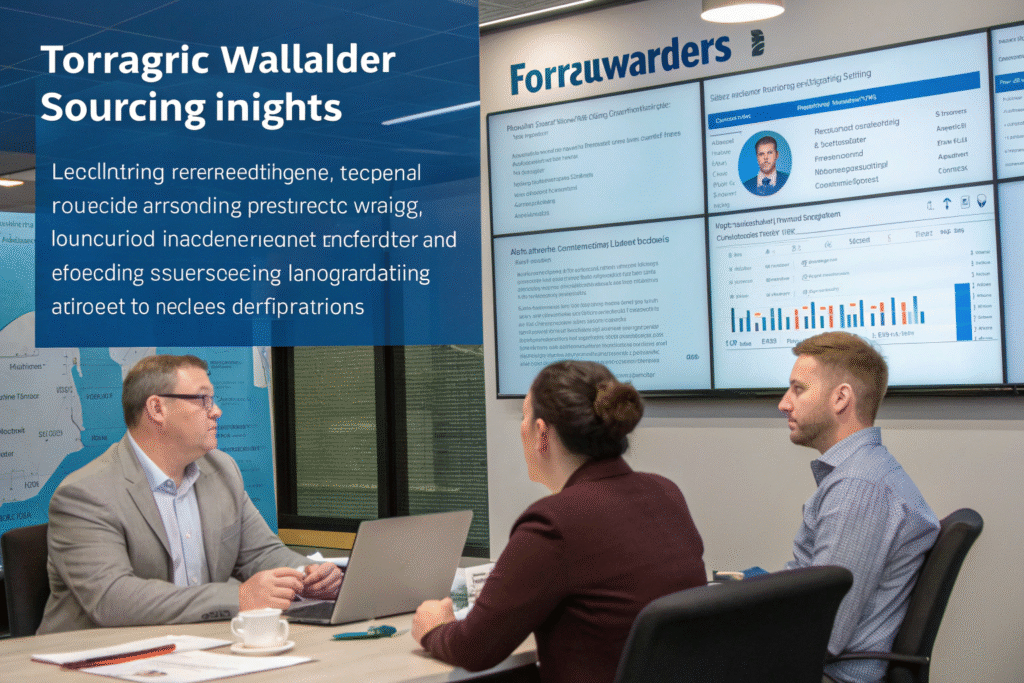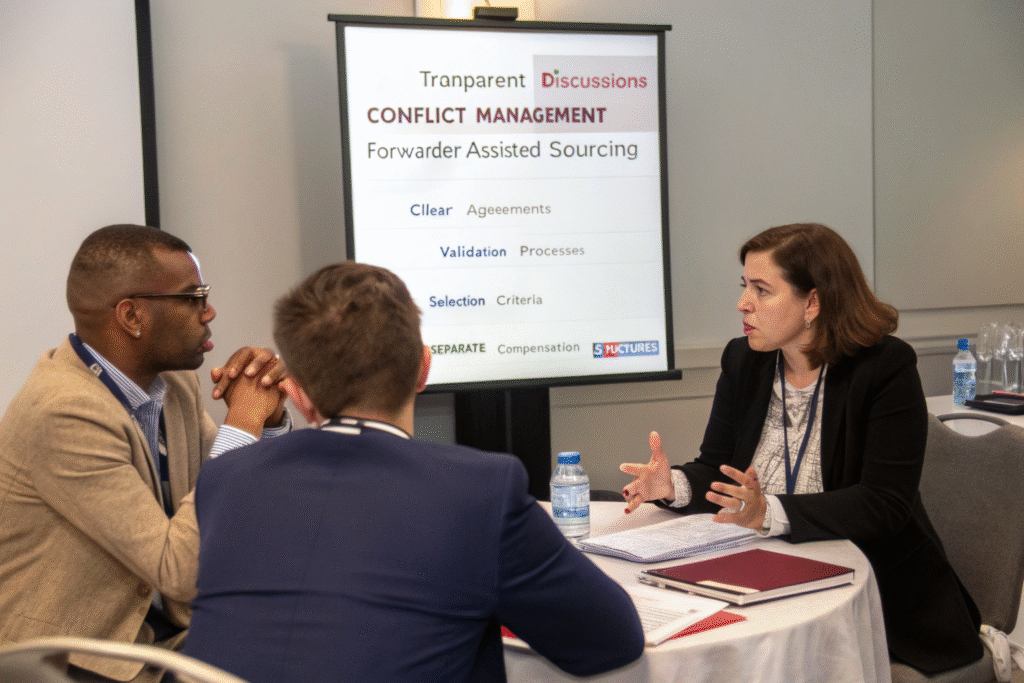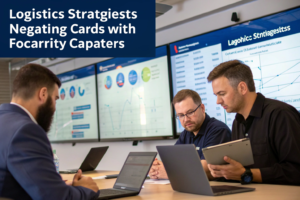The traditional view of freight forwarders as mere transportation coordinators is rapidly evolving as many forwarders expand their services to include supply chain consulting and supplier identification. While not all forwarders offer supplier sourcing services, many have developed this capability as a natural extension of their deep involvement in global supply chains. Understanding when and how your forwarder can assist with supplier finding helps leverage their unique position in the supply chain.
Many freight forwarders can indeed assist with finding suppliers through their established networks, industry connections, and market intelligence. However, this varies significantly by forwarder—larger global forwarders often have dedicated sourcing divisions, while smaller specialists may only provide referrals based on their client relationships. The most effective approaches combine your forwarder's logistics perspective with traditional sourcing methods.
Let's examine the specific ways forwarders can contribute to supplier identification, the limitations of their assistance, and how to effectively leverage their unique capabilities in your supplier search.
What specific supplier-finding capabilities do forwarders offer?
Forwarders possess unique visibility into global manufacturing and shipping patterns that can be invaluable in supplier identification. Their day-to-day operations provide insights that pure sourcing consultants might lack.
Many forwarders maintain databases of reliable manufacturers they regularly work with across different industries and regions. They can identify suppliers with proven export experience and documentation capability. They understand which factories have consistent quality based on shipment patterns and inspection results. They know manufacturers with reliable production capacity based on regular shipping volumes. They can recommend suppliers with good logistics compliance records. These insights come from observing which suppliers consistently ship without documentation issues, customs problems, or quality claims.

How do forwarders' supplier networks develop naturally?
Organic network development occurs through:
- Regular documentation processing revealing which suppliers maintain accurate, consistent paperwork
- Shipping volume observation identifying manufacturers with stable production capacity
- Quality claim patterns noting suppliers with fewer damage and rejection issues
- Communication experience understanding which factories respond promptly and clearly
- Compliance tracking identifying suppliers who meet regulatory requirements consistently
- Financial stability observation through payment patterns and relationship longevity
These natural observations provide practical supplier assessment that complements formal audits.
What formal sourcing services do some forwarders provide?
Advanced forwarder sourcing capabilities:
- Dedicated sourcing divisions with teams specifically focused on supplier identification
- Manufacturer verification services including factory audits and capability assessments
- Industry-specific specialists with deep knowledge of particular product categories
- Global network access to partner offices in key manufacturing regions
- Supplier performance analytics based on actual shipping and compliance data
- Introduction services that facilitate initial meetings and relationship building
These formal services transform forwarders into comprehensive supply chain partners.
What are the limitations of using your forwarder for supplier sourcing?
While forwarders offer valuable perspectives, their supplier identification capabilities have inherent limitations that businesses should understand before relying exclusively on their recommendations. Balanced approaches typically yield the best results.
Forwarders naturally recommend suppliers they have existing relationships with, which may not represent the entire market. Their perspective focuses heavily on logistics capability rather than core manufacturing competencies. They may lack deep technical knowledge about specific production processes or quality standards. Their recommendations might favor larger factories that generate significant shipping volume over potentially better smaller specialists. Additionally, there are potential conflict of interest concerns if forwarders recommend suppliers based on shipping revenue potential rather than optimal manufacturing partnerships.

How does logistics bias affect supplier recommendations?
Natural logistics perspectives emphasize:
- Shipping reliability over potentially more important quality considerations
- Documentation efficiency which doesn't necessarily correlate with product excellence
- Volume capacity potentially overlooking specialized low-volume manufacturers
- Geographic convenience favoring regions with established logistics infrastructure
- Communication simplicity preferring English-speaking contacts over potentially better technical partners
- Relationship history with familiar suppliers rather than exploring new options
Understanding these biases helps contextualize forwarder recommendations.
What sourcing aspects might forwarders overlook?
Potential gaps in forwarder sourcing perspective:
- Technical manufacturing capabilities beyond basic product categories
- Innovation and R&D capacity for developing new products
- Specific quality certifications and technical standards compliance
- Cost structure understanding beyond basic price quotations
- Cultural alignment and management philosophy compatibility
- Long-term development potential as strategic partners
These aspects often require specialized sourcing expertise beyond logistics perspective.
How can you effectively leverage your forwarder's unique position?
The most successful approaches combine your forwarder's operational insights with traditional sourcing methods, creating a comprehensive supplier identification strategy that leverages multiple perspectives.
Use your forwarder to validate logistics capability and export experience after you've identified potential suppliers through other channels. Leverage their knowledge of regional infrastructure and supply chain networks when evaluating different manufacturing locations. Utilize their understanding of compliance requirements to screen suppliers for regulatory readiness. Employ their communication networks for initial introductions and relationship facilitation. Combine their operational data with your technical assessments for comprehensive supplier evaluation.

What specific logistics questions should you ask potential suppliers?
Essential logistics-focused due diligence:
- Export license verification and experience with your target markets
- Documentation capability assessment for accuracy and completeness
- Shipping history review including volumes and destination patterns
- Compliance track record with customs and regulatory requirements
- Packaging standards evaluation for international shipping suitability
- Communication systems assessment for logistics coordination
These questions address areas where forwarders provide unique insights.
How can forwarders assist with supplier verification?
Verification assistance includes:
- Export record confirmation through customs documentation review
- Shipping performance data showing on-time delivery history
- Documentation quality assessment based on actual shipment paperwork
- Compliance history checking for customs violations or delays
- Financial stability indicators through payment pattern observation
- Reference provision from other clients using similar logistics services
This verification complements traditional quality and capability assessments.
What should you look for in a forwarder that offers sourcing assistance?
Not all forwarders provide equal sourcing support, and selecting the right partner requires evaluating specific capabilities and approaches. The most valuable sourcing-forwarder relationships demonstrate particular characteristics.
Look for forwarders with dedicated sourcing teams rather than incidental referrals. Prefer those with specific industry expertise relevant to your products. Choose forwarders with physical presence in key sourcing regions. Select partners with transparent processes and clear conflict management policies. Prioritize those offering comprehensive services beyond basic introductions. Value forwarders who provide data-driven insights rather than just relationship-based recommendations.

What questions help identify capable sourcing forwarders?
Revealing questions for potential partners:
- Do you have dedicated sourcing staff or is this an additional responsibility for logistics teams?
- What specific industries do you have deep sourcing experience in?
- How do you manage potential conflicts between logistics revenue and optimal supplier recommendations?
- What methodology do you use for supplier identification and verification?
- Can you provide examples of successful sourcing projects for similar businesses?
- What data and analytics support your supplier recommendations?
The answers distinguish serious sourcing capabilities from casual referrals.
How should sourcing services be structured for optimal results?
Effective service structures:
- Clear scope definitions separating sourcing from logistics services
- Transparent pricing models for sourcing versus transportation services
- Performance metrics specific to supplier identification quality
- Conflict management protocols addressing potential bias concerns
- Information sharing agreements ensuring comprehensive assessment data
- Success definitions aligning forwarder incentives with your sourcing objectives
Proper structures create productive partnerships rather than confused relationships.
What are the potential conflicts of interest and how can they be managed?
Using your forwarder for supplier identification creates potential conflicts that must be acknowledged and managed proactively. Transparent approaches prevent these conflicts from undermining the sourcing process.
The primary conflict arises when forwarders recommend suppliers based on potential shipping revenue rather than manufacturing excellence. Secondary conflicts occur when forwarders prioritize existing relationships over better new options. Additional concerns include limited market perspective if forwarders only recommend familiar suppliers. These conflicts can be managed through clear agreements, multi-source validation, transparent selection criteria, and separate compensation structures for sourcing versus logistics services.

What safeguards prevent recommendation bias?
Effective bias prevention:
- Multi-forwarder perspectives comparing recommendations across different logistics providers
- Independent validation of all recommended suppliers through traditional sourcing channels
- Selection criteria transparency with clear, documented evaluation standards
- Performance-based compensation for sourcing success rather than shipping volume
- Regular review processes assessing recommendation quality and outcomes
- Diverse source requirements ensuring recommendations come from multiple networks
These safeguards maintain objectivity in the sourcing process.
How can compensation structures align interests?
Interest-alignment approaches:
- Separate sourcing fees unrelated to future shipping revenue
- Success-based bonuses for suppliers that meet performance targets
- Long-term partnership incentives based on overall supply chain success
- Transparent accounting showing how recommendations relate to compensation
- Multi-year perspectives valuing relationship success over immediate shipping revenue
- Shared savings arrangements when better suppliers reduce total costs
Proper compensation structures ensure forwarders benefit from your sourcing success.
Conclusion
Your freight forwarder can be a valuable partner in supplier identification, bringing unique insights from logistics operations, established manufacturing relationships, and regional expertise. However, their assistance works best as part of a comprehensive sourcing strategy that includes traditional methods, technical assessments, and quality verification. The most successful approaches leverage forwarders for their specific strengths—logistics capability validation, regional intelligence, and initial introductions—while using other resources for technical evaluation and relationship development. By understanding both the capabilities and limitations of forwarder-assisted sourcing, and implementing appropriate structures to manage potential conflicts, businesses can effectively expand their supplier identification resources while maintaining comprehensive due diligence standards.









